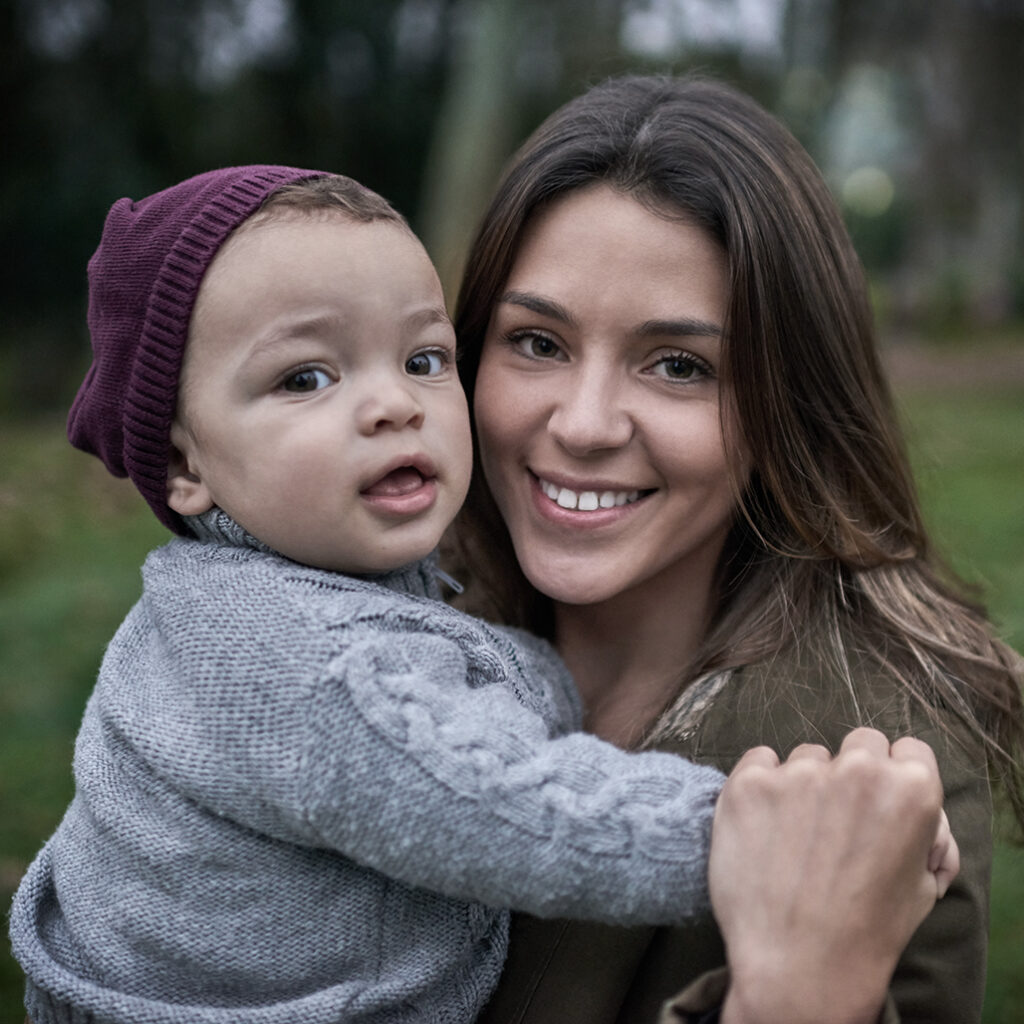All this month we’re playing clips from favorite episodes of 2024. Each week, a different member of our team will choose one episode to look back on, and we’ll talk about why it was one of their favorites. and today we are talking about one of Elizabeth’s favorite episodes, How to Tell If Your Kids Are Okay with Kyle Cruze.
Kyle Cruz helped us navigate this topic. He is a licensed marriage and family therapist in the state of Tennessee. His passion and expertise is with adolescents and their families who are struggling to navigate through the difficult and confusing aspects of this culture and life. Also, he works closely with those recovering from alcohol and drug addiction. He practices out of the counseling center at Christ Community Church here in Franklin, Tennessee. And Kyle is Eliazabeth’s son’s counselor.
One of the most heart wrenching parts of parenting is watching our kids struggle. When our children are in physical pain, we rush to their aid and see what we can do to help—even when they’re insisting that they’re fine. Mental health, however, is altogether different. While mental illness can present physically, so much of anxiety and depression happens inside the mind. Mental health is a serious topic that thankfully has become more widely talked about and acknowledged in recent years.
We often feel helpless or unsure of what to do when our child is struggling mentally, especially as solo parents. How do we effectively help our kids deal with anxiety or depression in a healthy way? And how can we tell if our kids are okay?
The reason I (Elizabeth) chose this episode, is not only because Kyle is Jax’s counselor and has done an amazing job getting him to open up and helping him deal with his struggles, but also because anxiety and depression are so prevalent in our culture right now, and then to pile the holidays on top of it, it’s like, Man, we need to talk about this! Not just with our kids, but for ourselves.
What I love about Kyle and this episode is how he breaks down when it’s the best time to talk to our kids about things that they’re struggling with and how to approach things
He also goes into the benefits of struggling (for our kids).Life is going to throw hardship and pain and all the things at them. So we have to teach them and give them the opportunity to move through that on their own.
[Begin Clip]
If we suspect that our child is struggling, what should our first step be and how do we handle it if our child doesn’t want to acknowledge it or walk into it? If they don’t want to talk to us about it, how do we get in there?
I help coach parents. I find that kids do want to talk about it. They typically just don’t want to talk about it when you want to talk about it. Now there’s going to be a lot of blanket statements made and every kid is different. But in general, I find that kids do desire to talk about things with their safe people. It’s typically just not right when they get in the car after school, it’s typically a time that’s the most inconvenient time. My kids typically want to talk when I’m ready to go to bed.
And so there are levels of concern here. If there are some immediate concerns going on with your child and they’re not talking and we need to get some traction going with some of these conversations, then I would suggest expediting the process and bringing in other support. But if you know that there’s something in there and they’re just not expressing it quite as quickly or quite as openly as you would, I would make it known. I think kids appreciate direct conversation. I would make it known that, “Hey, I see that there may be some more going on inside of you. I respect the fact that you may not know exactly what it is. You may not know how to put words to it, but I would love to play that out with you at some point. It can be when you’re ready, but I just want you to know I see it.” It’s an invitation. It’s not a, “Hey, sit down, we need to talk about something.” It’s not going to go anywhere. Most of the time you’re just putting it on the table and inviting them into it and also saying, “I see it. I know it’s there. I know you” and there’s often an appreciation with children. Then wait for it. It’ll come. It’ll come when you’re not really expecting it. It’ll come likely when it’s relatively inconvenient, but so goes parenting; that’s what we deal with. Just make it known that you see them and that you would love to hear them and then be patient and let them come to you.
A lot of single parents find themselves in a situation where they can’t control the environment, especially if your child is living half of the time or part of the time or a weekend at a time away. You have no control over what happens at the other house with your ex. You can’t necessarily change the environment. What do we do in those situations?
I think it’s important, first of all, just to take a step back. Naturally, we want to protect them. We want to eliminate any potential distress that they might experience. But I think it’s important that we take a step back and consider the benefits of potentially struggling or the benefits of potentially getting triggered. I think most parents would agree, at least the ones I’m talking to, that our kids are becoming less and less resilient. There’s an inability to deal with hard things. And so obviously this is on a spectrum. If you have a child that’s at your ex’s house and there’s stuff going on at that house that’s clearly problematic, there’s a level of discernment there that we as parents have to step in on and consider. But if there’s just some differences at his or her house—and it happens to be something that your child is struggling with, then we need to first consider if it’s an opportunity for us to name it for what it is and create some strategy around it. Learn how to not necessarily avoid it or eliminate it altogether, but navigate through it.
It’s empowering for kids to feel triggered and then to have something within they can access in that moment and move through it themselves. It’s relieving for them. When we rescue them, of course, no kid is going to protest against that, but their confidence in themself does not grow. They almost subconsciously know that. In some ways, it’s counter to anything you feel as a parent. But you’re looking for opportunities for them to experience hardship in order for them to grow some healthy callouses. And they’re better for it and they’re actually appreciative of it. They might not verbalize that.
And I didn’t do a good job of this when I was a single dad. I think it’s almost counterintuitive to a single parent because you’ve seen them struggle already. You’ve seen them go through a bunch of stuff, and I love the idea of being the hero for my child and stepping in and protecting and taking them out of the situation. It fed my ego, my hero ego, and that’s all my stuff. But I think it’s a natural tendency, especially if our kids have been through hard things, to want to jump into the role of fixing because there’s an element of us that feels like failure: We couldn’t keep our marriage together in some way. We failed.
When it comes to the whole rescuing thing, how do we help them through some of their struggles?
My son goes to his dad’s and he needs me at certain times or wants me to be there at certain times, but I know that I can’t always be there. I know that it’s also healthy for him to be able to do some of this on his own—take what we’ve practiced at home and work through some things on his own when he’s in those situations and scenarios. He is empowered to do that.
But what’s that line of you wanting to be there for him?
You want to know that you’re there if he needs you, but also him not feeling more abandoned on the other side of it. It feels like a thin fine line of wanting to continue to be that safe person that’s always there, but also creating resilience at the same time. So it feels like a healthy balance, but I don’t know what that healthy balance is. And it may be a little bit of a moving target. I think one of the hardest questions is: Why are you doing this? Is this for him? Is this for her or is this for you?
To your point about wanting to be the hero, I appreciate that type of parental humility. It draws me because I don’t see it very often and so often (and I’m raising my hand as I say this), so much of the way I parent is for me, it’s not for them; it’s to calm my own anxiety to deal with my own performance-oriented mindset. So I think that’s question number one that we have to be able to answer honestly, and if you can’t answer it yourself, then you need a good friend that can lovingly say, “Yeah, this sounds more about you than it is about your son or your daughter.”
It’s a brutal question, but it needs to be considered. And I think parents know their kids most of the time and so there is a level of discernment there. If you know this isn’t about me. This is about his or her wellbeing, and right now my gut’s just telling me he needs some reprieve. He needs a breath of fresh air. He needs some “rescuing.” Do it. Trust the gut as long as that question number one has been answered genuinely. If that question hadn’t been answered genuinely, then it’s hard to trust the gut. But if it has, then go with what you know is best.
[End Clip]
That was such a good clip and a great episode. I (Elizabeth) really love how Kyle talks about how to approach our kids, because for me, I have wanted Jax to talk to me on my time versus his time. And I haven’t really left things open by saying, “Hey, I’ve noticed this. If you want to talk about it, I’m here. No big deal.” I say it sometimes, but to just open it up and to just let him know that, “I’ve noticed this. You may not want to talk about it right now, but just let me know when I’m here to talk to you anytime you want to.”
The whole idea about how their struggles build their confidence and resilience was such a tough one for me. It’s a good reminder that, without resistance, you don’t build muscle, you don’t build anything. Even from a spiritual perspective, there is no testimony without the test. There has to be resistance. And as solo parents, we know that our kids have already experienced so much. We want a rescue, we want to jump in there, but it’s so critical for them.
I (Robert) love the idea of trying to look at their struggles as a way of building their confidence and resilience instead of it just looking like, “Oh, that’s a struggle” That’s actually an opportunity.
What I (Robert) was thinking about is—and we think about kids as being children, but my kids are all adults now—and I think about when they hit struggles. A lot of times we think that parenting stops when their children, but it just changes. We’re just more like coaches. But we can still have a tendency to want to step in there and forget that struggle is something that’s going to help strengthen them and build resilience.
How to trust our instincts was a really great reminder, because I (Elizabeth) tend to overthink everything and over analyze situations. And that kind of took the pressure off; that we don’t have to know every single little thing and we can trust our instincts to know what’s right.
For me (Elizabeth), so much of that is how much does my anxiety drive what I’m doing? Because, when I’m jumping, what’s really happening is: I can’t handle this fear that I’m having, and so I’m going to jump in and fix it—even though Jax is probably not feeling half or even a quarter of the anxiety that I have.
LISTENER QUESTION
“I originally wanted to wait until my children were older before giving them a cell phone. However, since I heavily rely on friends and family helping out with getting them places, I need to be able to get a hold of them. Yet, I fear the dangers of cell phones. What can I do to help ease my fears?”
It’s tough! I (Robert) personally tried to wait as long as I could.
In my experience, there’s been a lot of shaming people for giving a phone too early. And there are certainly dangers in it. And certainly our kids are addicted to phones! But I know there are other kinds of technology; there are phones out there that don’t have all the bells and whistles.
Do some research. You can find phones that only allow texting, calling, a calendar and maybe a timer. It gives kids the ability to do what they need to do without having all the apps and all the games and all the photos and all the things.
Jax has a watch, and I control who his contacts are in the watch, who he can call and text. I can see where he’s at.
I (Robert) think that’s a good idea. Watches are not a convenient way to browse social media. It really restricts your screen time. It’s a functional device rather than a primary communicator.
So, wait as long as you can! And they’re constantly upgrading security so that parents can stay in touch and keep track–but it’s something to pay attention to. And I (Robert) would say that the bottom line is don’t just give devices. Be really intentional about it
We love hearing from you. If you want to send in a question, go to our website and you will find instructions on how to email, call, or leave a voice message. You can also head over to Instagram or Facebook and send us a question there as well.




